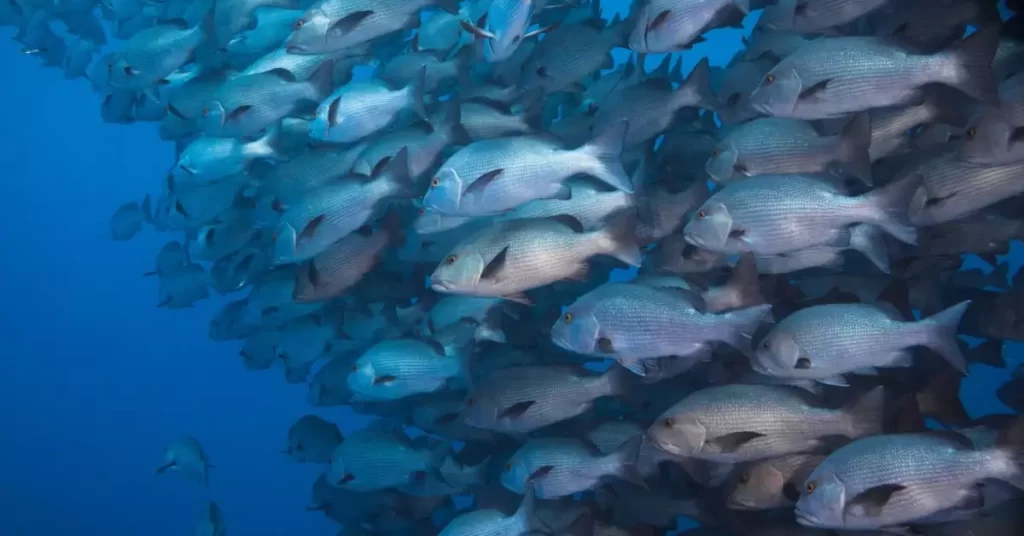Have you ever wondered if your fishy friends can enjoy the same food that you do?
While it may be tempting to share your meal with them, it’s important to understand the dietary needs of fish and the potential consequences of feeding them human food.
In this article, we will delve into the fascinating world of fish nutrition and answer the question, “Can fish eat human food?”
Understanding Fish Nutrition
The Basics of Fish Diets
Fish diets are as diverse as the fish species themselves. Some fish are herbivores, feeding primarily on plant material, while others are carnivores or omnivores.
Fish require specific nutrients, such as proteins, carbohydrates, fats, vitamins, and minerals to maintain their health and support growth.
Fish Species and Their Dietary Needs
Different fish species have varying dietary needs. Here are some examples:
- Goldfish – Omnivores that require a mix of plant and animal-based foods.
- Betta fish – Carnivores that thrive on a diet rich in protein, such as insects and small crustaceans.
- Tetras – Omnivores that eat both plant and animal-based foods, including small insects, worms, and algae.
It’s crucial to research the dietary needs of your specific fish species to ensure they receive the proper nutrition.
Human Food and Fish
The Risks of Feeding Human Food to Fish
Feeding human food to fish can be detrimental to their health for several reasons:
- Nutritional Imbalance: Human foods may not provide the right balance of nutrients that fish need, leading to malnutrition and health issues.
- Digestive Issues: Some human foods can be difficult for fish to digest, causing gastrointestinal problems.
- Toxicity: Certain ingredients in human food, such as spices or additives, can be harmful or even toxic to fish.
Human Foods that Can Be Given to Fish (In Moderation)
Although it’s not recommended to make human food a regular part of your fish’s diet, some items can be fed occasionally as a treat:
- Cooked vegetables: Peas, zucchini, and spinach can provide valuable nutrients for your fish when given in small amounts.
- Fruits: Small amounts of fruit, such as berries or melon, can be a healthy treat for some fish species.
- Lean protein: Cooked, unseasoned chicken or fish can be given to carnivorous or omnivorous fish as a protein source.
Remember to always research your specific fish species before offering any human food.

Providing a Balanced Diet for Your Fish
Fish Food Options
There are various types of commercial fish foods available, including:
- Flakes: A popular choice for small to medium-sized fish, flakes are lightweight and easy for fish to eat.
- Pellets: Available in different sizes, pellets are suitable for a wide range of fish species.
- Frozen or Freeze-dried Foods: These include bloodworms, brine shrimp, and daphnia, which provide a natural, protein-rich option for fish.
How to Choose the Right Food for Your Fish
To choose the right food for your fish, consider the following factors:
- Fish species: Research the dietary needs of your specific fish species to ensure you provide the right balance of nutrients.
- Size and age: Smaller, younger fish may require smaller-sized food or more frequent feedings than larger, adult fish.
- Water type: Freshwater and saltwater fish may have different dietary requirements, so make sure to choose food specifically designed for their environment.
A balanced diet is crucial for maintaining the health and well-being of your fish. Consult with a veterinarian or aquatic specialist if you’re unsure about the best diet for your fish.
What to Do If Your Fish Eats Human Food
If your fish accidentally consumes human food, monitor them closely for any signs of distress, such as lethargy, loss of appetite, or difficulty swimming.
If you notice any of these symptoms, consult a veterinarian or aquatic specialist immediately.
In some cases, a water change or activated charcoal treatment may be necessary to mitigate the effects of the ingested human food.
FAQs
Can I feed my fish bread or crackers?
It’s not recommended to feed your fish bread or crackers, as these foods can cause digestive issues and may lack the necessary nutrients for a balanced diet.
What human foods are toxic to fish?
Foods containing spices, salt, caffeine, alcohol, or artificial sweeteners can be toxic to fish. Always avoid feeding your fish these items and consult a specialist if you’re unsure about a specific food.
How often should I feed my fish?
The frequency of feeding depends on the species, size, and age of your fish. Generally, most fish should be fed 1-2 times daily. Be sure to research the specific needs of your fish species to determine the optimal feeding schedule.
Conclusion
While it may be tempting to share your favorite human foods with your fish, it’s important to remember that their dietary needs are different from ours.
Feeding fish a diet specifically designed for their species, size, and environment will ensure they receive the proper nutrition to thrive.
Occasionally offering carefully selected human foods as treats can be a fun way to bond with your fish, but it’s crucial to research their specific needs and avoid any toxic ingredients.
By providing your fish with a balanced diet and monitoring their health, you’ll be rewarded with a happy and healthy aquatic companion.